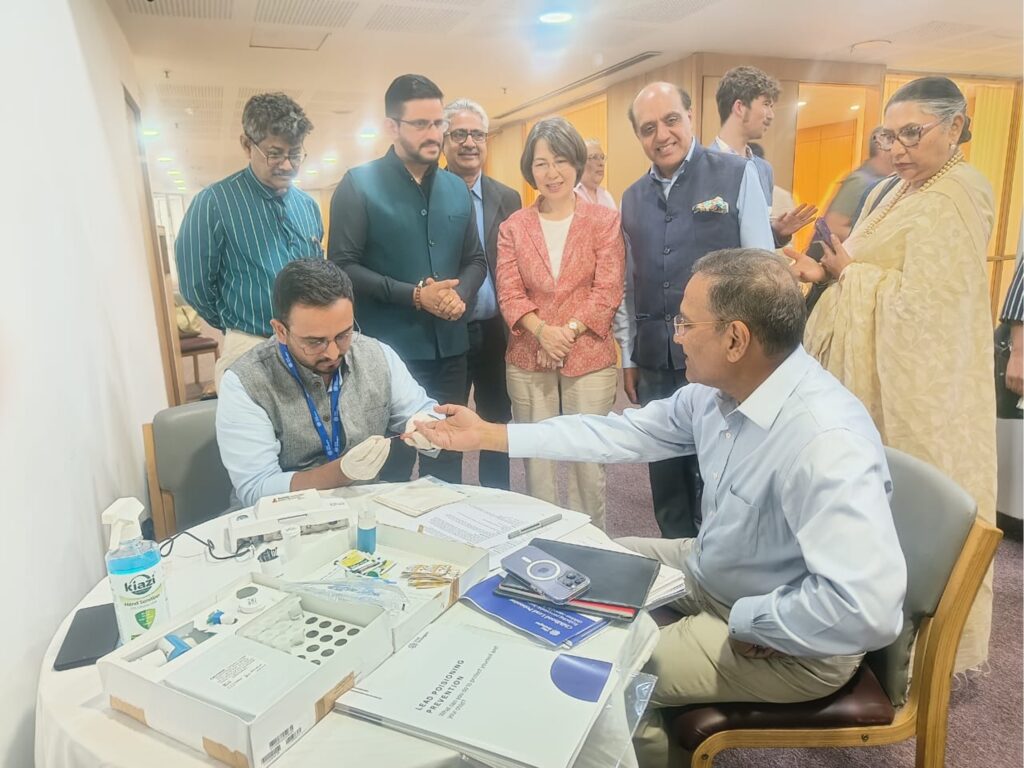Half of all children in India have unsafe blood lead levels—and the country accounts for over a quarter of all global deaths due to lead exposure, according to the Institute for Health Metrics and Evaluation.
In some regions, dangerously high blood lead levels are even more prevalent, threatening irreversible brain development in children.
According to recent surveillance by Vital Strategies and Pure Earth, a global NGO addressing lead poisoning, children in India’s Bihar State face a particularly high risk of exposure. Vital Strategies India partnered with Pure Earth and Bihar’s local health department to conduct statewide surveillance, which found that over 90% of the children and 80% of the pregnant women tested had blood lead levels above 5 μg/dL, the WHO intervention threshold.
These alarming results prompted local officials to call for a deeper dive to determine the contamination sources and take urgent action to protect children. The Bihar State Health Department promised to sustain surveillance efforts and plans to strengthen local capacity—in laboratories as well as medical college hospitals—to conduct blood lead tests. Health officials also announced plans to educate the local population about the dangers of lead poisoning.
Recognizing the threat of lead exposure throughout the country, Vital Strategies India is engaged in several activities locally and nationally to end childhood lead poisoning. These include:
- Signing a memorandum of understanding with the Maharashtra province’s Commissionerate of Health Services to expand its ongoing collaboration on environmental health to incorporate childhood lead poisoning prevention. Vital Strategies will provide technical assistance to the region to better determine the severity of the problem through surveillance and will also strengthen the capacity of health professionals to identify, treat and prevent childhood lead poisoning.
- Participating in the first meeting of India’s Working Group on lead poisoning in New Delhi, a group with a main objective to recommend the formulation of a comprehensive national policy for lead poisoning to the Ministry of Health. LM Singh, Managing Director of Vital Strategies India, presented the initial findings from the Bihar province surveillance done by Vital Strategies and emphasized the need to bring down the costs of point-of-care testing.
- Demonstrating the use of the LeadCare II device, a portable analyzer widely used in the field to assess blood lead levels. In the coming months, Vital Strategies and the Health Department of Tamil Nadu will be conducting surveillance in the state using the portable analyzer.

Globally, 65% of preventable intellectual disabilities are caused by lead exposure in childhood. Yet despite clear evidence of harm, many countries do not sufficiently monitor lead poisoning or regulate lead in consumer products or industrial practices. To reduce the number of exposed and poisoned children, Vital Strategies works with governments to identify areas of concern and prioritize prevention efforts. Learn more about Vital Strategies’ lead poisoning prevention program here.
Get Our Latest Public Health News
Join our email list and be the first to know about our public health news, publications and interviews with experts.